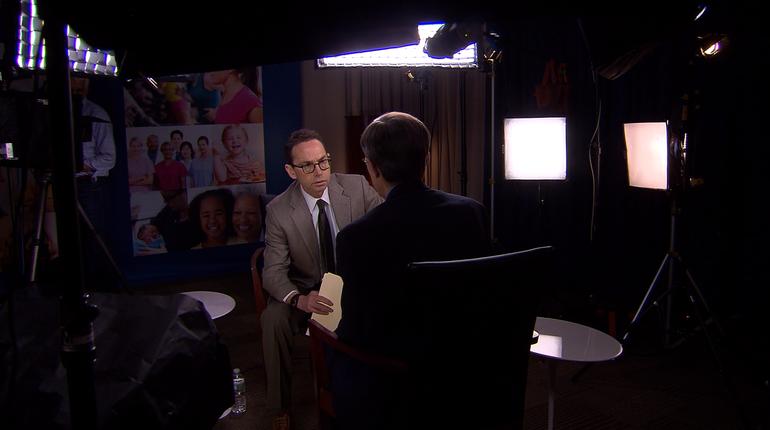Every once in a while, a story comes through 60 Minutes that has the potential to change lives. This week, Scott Pelley’s report on CBS News on a new medical treatment using the polio virus to kill cancer is that kind of story.
Most people remember polio as the scourge that paralyzed millions of children until a vaccine was developed in the 1950s. Now, researchers at Duke University are injecting a modified polio virus directly into deadly brain tumors. The research is still in early stages and Duke doctors warn that it’s impossible to predict how effective the polio treatment will be in a wider population, but they’ve seen some stunning results in their Phase 1 trial.
“One of the scientists told me it takes a killer to kill a killer,” says Michael Radutzky, one of the 60 Minutes producers behind the story. “And that’s when I started to appreciate that if you’re going to kill something as formidable and hydra-headed as cancer, you needed an agent that could do major damage.”
Radutzky has been following cancer patients undergoing experimental treatments for more than 30 years for CBS News. And he says reporting on cancer is often very personal for the reporter.
“Everybody knows someone who has cancer,” Radutzky tells Ann Silvio of 60 Minutes Overtime (in the above video player). “I’ve had multiple members of my family die. I’ve had friends die.”
Radutzky’s cousin and uncle died from a type of brain tumor called gliobastoma. Glioblastoma, among the deadliest of human cancers, is at the center of this week’s two-part 60 Minutes report.
For Jeff Fager, 60 Minutes’ executive producer, “glioblastoma” is a word he learned as a kid from his father.
“I grew up knowing these terms,” says Fager, “and that was one that I knew was hell. Glioblastoma– that’s not good.”
Jeff’s father, Dr. Charles Fager, was a prominent neurosurgeon in Massachusetts, well known for his innovative surgical techniques, but Jeff says his father wouldn’t operate on glioblastoma.
“He didn’t think it was operable, and he didn’t want to put people through the suffering of what comes with surgery and chemo and radiation,” Fager says.
Dr. Fager died a year ago, at age 90, around the time 60 Minutes began shooting this week’s story on the polio trials at Duke University. Jeff Fager tells 60 Minutes Overtime that he wished his dad had lived long enough to see the story.
“If my father was alive to see this 60 Minutes story, he would find it hard to believe because it is such a powerful cancer that is unstoppable,” Fager says.
And yet, at Duke University, the polio virus appears to be stopping glioblastoma. The first two patients in Duke’s phase one clinical trial are cancer-free three years after receiving the infusion of polio virus.
Radutzky says the researchers involved with the glioblastoma trial are very optimistic behind-the-scenes.
“You know, they whisper about a ‘cure’ but doctors just can’t use words like that with patients, especially at such an early stage,” says Radutzky. “But words like ‘remission’ and ‘cancer-free,’ they’re not even hedging on those words.”
After Radutzky and fellow producer Denise Cetta first screened their story about the polio treatment for executive producers at 60 Minutes, Fager told them to stay on the story.
“Stay on it. Don’t leave it,” Fager recalls saying to the producers. “We should do another version in the fall. We should keep watching it. Who knows how many stories we’ll end up doing on this subject, but I wouldn’t be surprised if it’s many.”














